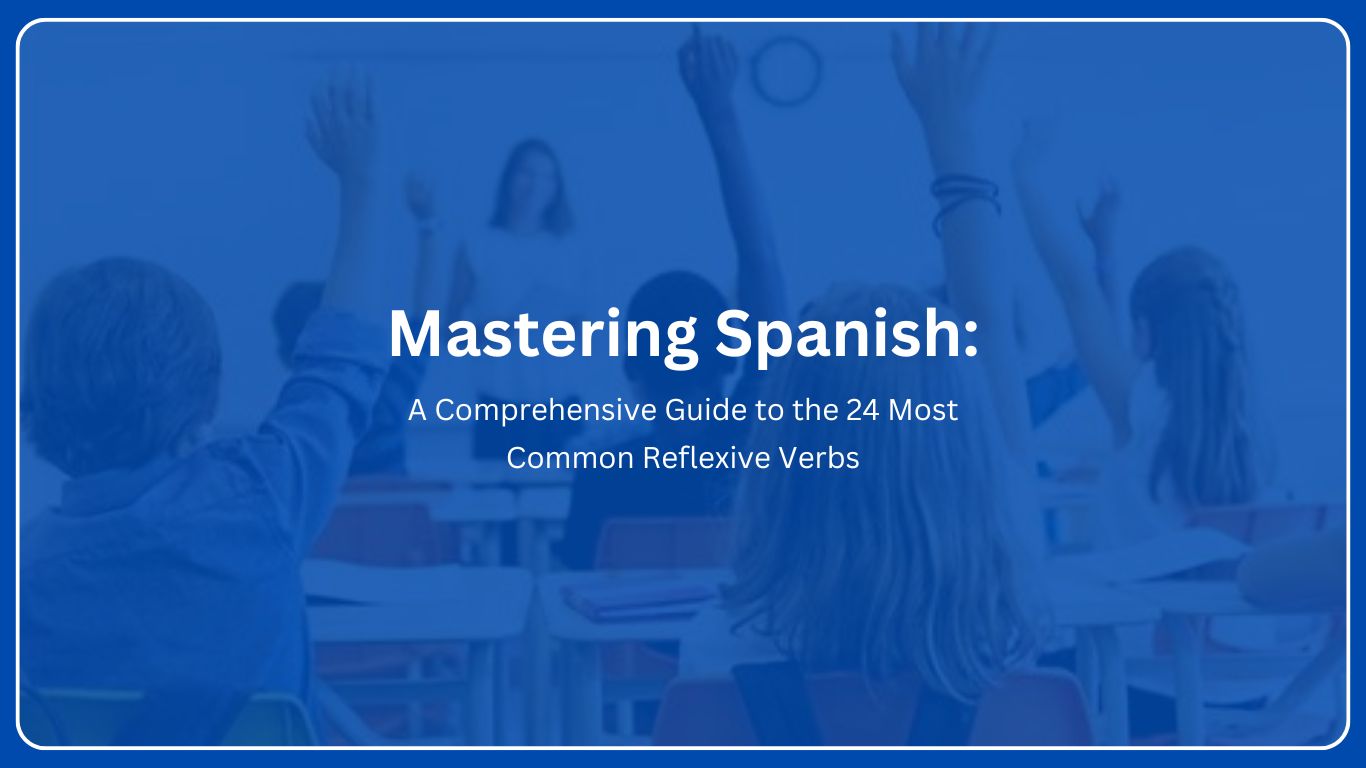
Introduction:
Learning a new language can be an exciting and rewarding journey, and when it comes to Spanish, understanding reflexive verbs is a key element to fluent communication. In this blog post, we will delve into the 24 most common reflexive verbs in Spanish, providing you with a solid foundation to enhance your language skills. Whether you’re a beginner or looking to brush up on your Spanish, this guide will help you navigate the intricacies of reflexive verbs with ease.
Title: “Mastering Spanish: A Comprehensive Guide to the 24 Most Common Reflexive Verbs”
Introduction:
Learning a new language can be an exciting and rewarding journey, and when it comes to Spanish, understanding reflexive verbs is a key element to fluent communication. In this blog post, we will delve into the 24 most common reflexive verbs in Spanish, providing you with a solid foundation to enhance your language skills. Whether you’re a beginner or looking to brush up on your Spanish, this guide will help you navigate the intricacies of reflexive verbs with ease.
What Are Reflexive Verbs?
Before we dive into the list of common reflexive verbs, let’s briefly understand what reflexive verbs are. In Spanish, reflexive verbs indicate that the subject of the action is also the recipient of the action. These verbs are easily recognizable by the reflexive pronoun attached to the end of the infinitive form (e.g., lavar – to wash, lavarse – to wash oneself).
The Essential 24 Reflexive Verbs:
- Acostarse (to go to bed)
- Afeitarse (to shave)
- Banarse (to bathe)
- Cepillarse (to brush)
- Despertarse (to wake up)
- Ducharse (to shower)
- Lavarse (to wash)
- Maquillarse (to put on makeup)
- Peinarse (to comb)
- Ponerse (to put on, to wear)
- Secarse (to dry off)
- Vestirse (to dress)
- Arrepentirse (to regret)
- Divertirse (to have fun)
- Enamorarse (to fall in love)
- Irse (to leave)
- Llamarse (to be called)
- Olvidarse (to forget)
- Quejarse (to complain)
- Reírse (to laugh)
- Sentirse (to feel)
- Alegrarse (to be happy)
- Preocuparse (to worry)
- Reunirse (to meet, to gather)
How to Use Reflexive Verbs in Sentences:
To solidify your understanding, let’s explore how reflexive verbs are used in sentences. Consider the following examples:
- Me levanto a las siete todos los días. (I get up at seven every day.)
- Ella se maquilla antes de salir. (She puts on makeup before leaving.)
- Nos reunimos con amigos en el café. (We meet with friends at the cafe.)
By incorporating these verbs into your daily vocabulary, you’ll be better equipped to express actions that involve the subject acting upon themselves.

Sólo spanish